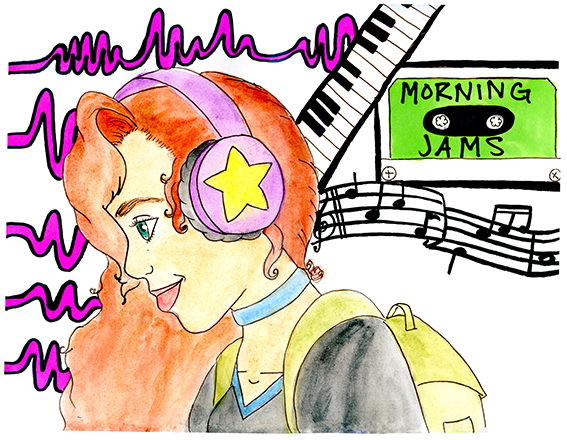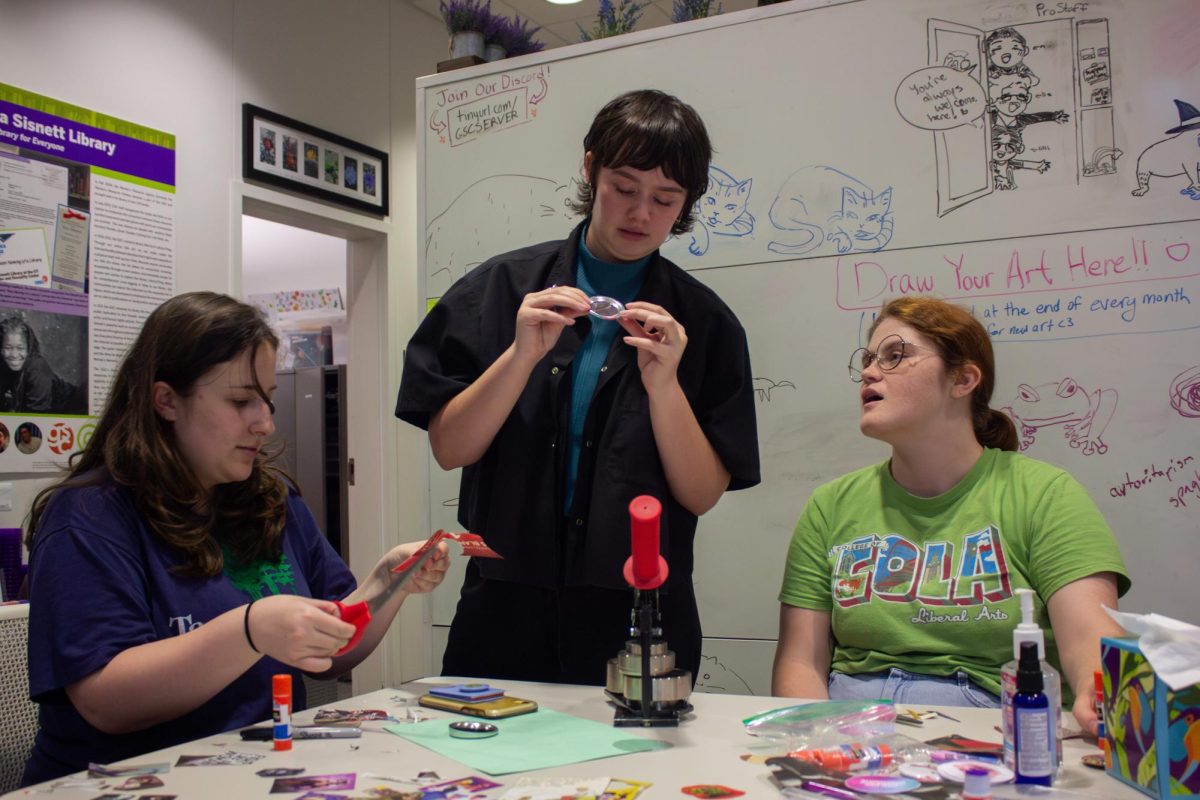With today’s technology, students have greater control over the music they choose to listen to. From orchestral to country, each genre of music creates a different atmosphere while walking to class.
For most, music has become a way to escape the world and focus on specific emotions and thoughts, and music acts as an avenue of escape through which they can focus on specific emotions and thoughts. Students may find that listening to music while walking to class enhances their feelings and creates a better environment for themselves.
Michael Domjan, a psychology professor, said music can be used to both express and change our mood when we listen to one genre over another.
“Thanks to technology, music can act as a feedback loop,” Domjan said. “If we want to feel a certain way, we can turn on music, and if we feel another way we can choose music to express those emotions as well. Music activates almost every area of the brain from memory and motor circuits to emotions and that is one of the remarkable things about music.”
Domjan also said the music you choose to listen to, when you choose to listen and how often you listen to music all plays into your character.
“The environment you create for yourself represents your specific personality,” Domjan said. “Musical selection as well as how much you elect to immerse yourself in music reflects a person’s character and environment they have created for (themselves).”
Studio art freshman Emma Bissonnette said she listens to music on the way to class and likes to listen to worship music to put her in a specific mood.
“For me, it’s a way to pass the time walking to class, but also time I can spend with God and get into a better mood simultaneously,” Bissonnette said. “When I listen to worship music, it makes me feel at peace and puts me in a better mood all throughout the day. It sort of sets the tone for my day and reassures I will have a good one.”
Biochemistry sophomore Athena Owirodu said she doesn’t listen to a type of music in particular, using it instead as a distraction.
“Sometimes I listen to just instrumentals, or pop, or gospel, really anything that is in right now,” Owirodu said. “I feel like it distracts me from responsibilities and stresses I have and gives me a way to get away from school, even if it is just for five minutes.”
While Owirodu and Bissonnette said they feel like they reap benefits and have a purpose for listening to music on the way to class, Domjan said listening to music for an overwhelming amount of time may not actually be very beneficial.
“Music can be used as a way to meditate, energize and pace exercise or even to just enrich your day, each of these categories all which have a specific set of benefits,” Domjan said. “I suspect, the more time you spend listening to music the less you spend listening to it because the music becomes part of the background and if it is part of the background you are not paying very close attention to it.”
Domjan said he thinks listening to music 24/7 makes it much easier to ignore or concentrate on other things while the music is playing so it does not disrupt activities, but if you are carefully listening, music will disrupt everything else you do.
“I enjoy classical music when I am not teaching psychology and there are times I can’t listen to music when I am driving because I pay too close attention to it,” Domjan said. “So I imagine the only way someone can listen to music all the time is if they are not paying close attention to it.”





















